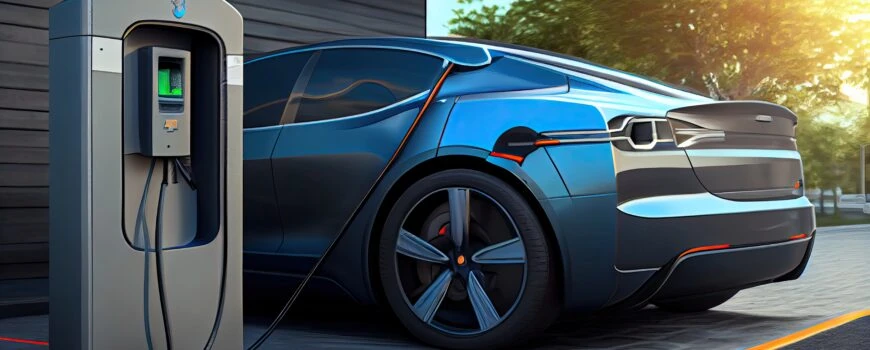3 big reasons Americans haven’t rapidly adopted EVs

3 big reasons Americans haven’t rapidly adopted EVs
US consumers are buying electric vehicles – just not at the pace some analysts predicted. A few core reasons keep the average consumer from moving past petrol.
Throughout the past few years, analysts have touted electric vehicles as the future of transport – one Americans would dive into, eagerly and rapidly. The EV market is indeed expanding, but the US’s electric vehicle ‘revolution’ appears to be happening much slower than some analysts and car manufacturers expected.
Since 2016, sales of EVs in the US have grown – from nearly 65,000 vehicles sold in 2017, to more than 800,000 vehicles in 2022. Data from auto analytics firm Motor Intelligence showed EV sales rose 51% in the first half of 2023, following the upwards trend. However, those gains are still a drop from last year’s 71% growth in the same timeframe. And Tesla, which leads the market with more than half of all EV sales, recently reported its lowest quarterly earnings in two years, leading to a $138bn (£111.4bn) drop in the company’s stock value.
Some American car manufacturers are taking new business decisions based on these signals.
General Motors – which two years ago announced a goal of phasing out internal combustion engines by 2035 – is pulling away from a production goal of 400,000 EVs by mid-2024. They’ve also cancelled plans to pair with Honda to build a line of more affordable EVs. At Ford, executives are delaying billions of dollars in EV investment, saying they don’t yet need the production capacity to meet demand.
It’s not that Americans don’t want to buy EVs, says Elizabeth Krear, vice president of Electric Vehicle Practice at consumer-intelligence firm J.D. Power.
“We survey over 2,000 new vehicle shoppers to gauge their interest in EVs every single month,” she says. “In October, the percentage of new vehicle shoppers very likely to consider a full-battery electric vehicle reached an all-time high of 29.2%. So, almost one out of every three new vehicle shoppers are very likely to consider an EV for their next vehicle purchase.”
Yet a few core reasons have slowed the progress of EV adoption for US drivers – barriers that need solutions before American uptake can skyrocket as forecasted.
The affordability issue
Chief among these roadblocks is affordability. Even as prices come down, and the US introduces tax credits, EVs remain much more expensive than their combustion counterparts. With US interest rates at a two-decade high, the price tag for the average American car shopper is prohibitive.
Even those early adopters who came over to EVs, are fed up.
In a seemingly bizarre yet tragic twist, a new study says that EV owners are a fickle bunch. After purchasing an electric vehicle, half of EV owners go back to ICE vehicles as either a replacement car or a second vehicle for their household – all with the exception of Tesla owners, who are (no surprise) notorious for their fierce brand loyalty.
A new study from S&P Global Mobility revealed that EV owners switching back to ICE vehicles had three classic arguments: pricing, infrastructure, and range anxiety, and other consumers just felt better having an ICE or hybrid vehicle in the garage as a backup plan.
The study looked at data from this year through July on a slew of major brands, with Nissan coming in strong in loyalty to EVs at 63.2%, followed by Chevrolet at 60.6%.
Looking at the data on individual models, 37.3% of Ford Mustang Mach-E owners bought another EV, versus 45.8% opting for an ICE vehicle, with a large number of buyers transitioning from a Ford truck or SUV in both ICE and hybrid powertrains. Overall about 30% of EV owners want to go back to gasoline powered cars.
- Why?
Range anxiety - Mechanical issues
- Inconvenience looking for charging stations or long lines once they find one.
- Poor build quality
- Expensive to buy expensive to fix. Some owners have been hit with a $25,000 repair bil to change their battery pack after the warranty expires.
- And as another slap in the face, putting solar panels on your house is not cheap anymore. MOsttax incentives are gone and power companies are reducing the payouts for sending your surplus back into the network to the point it’s almost just pocket change.
As a car guy myself (I got my driver’s license back in 1980) I consider myself a car aficionado like many of you. People like us will hold onto our gas powered cars until the Government pulls them from our cold , dead hands. j/k.
Regardless the human race is going to see an upheaval not seen since we switched from horses and buggies. Strap yourself in.
